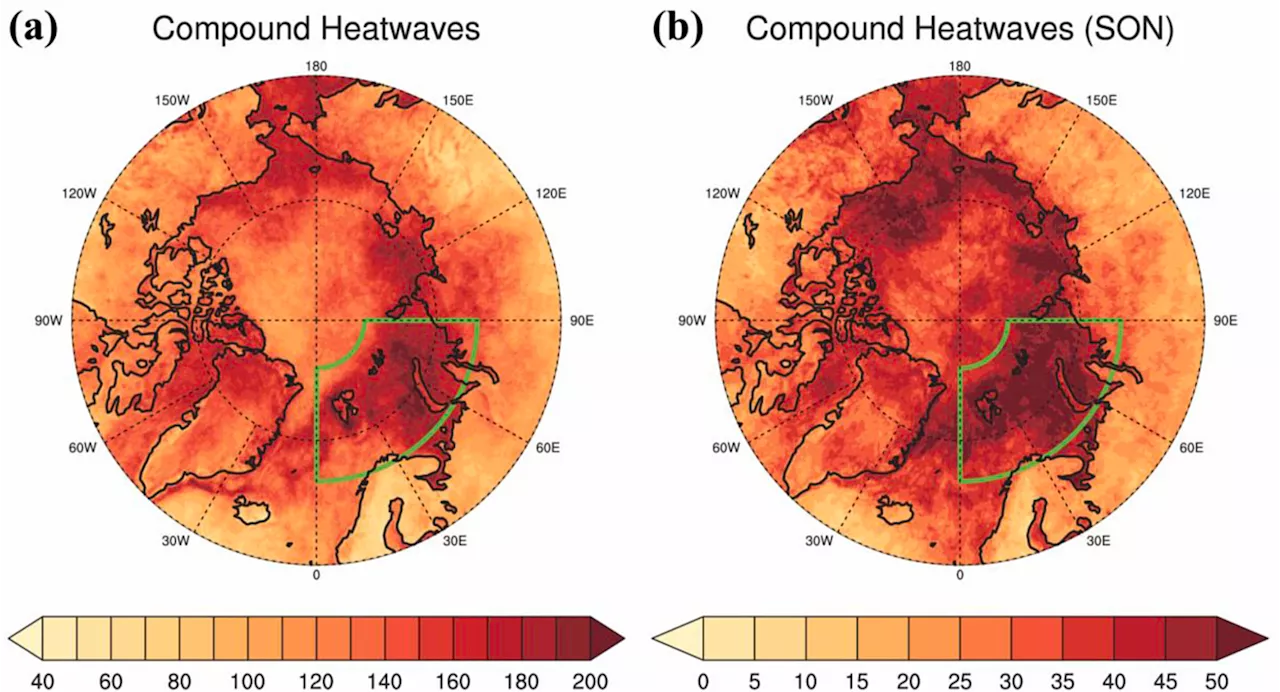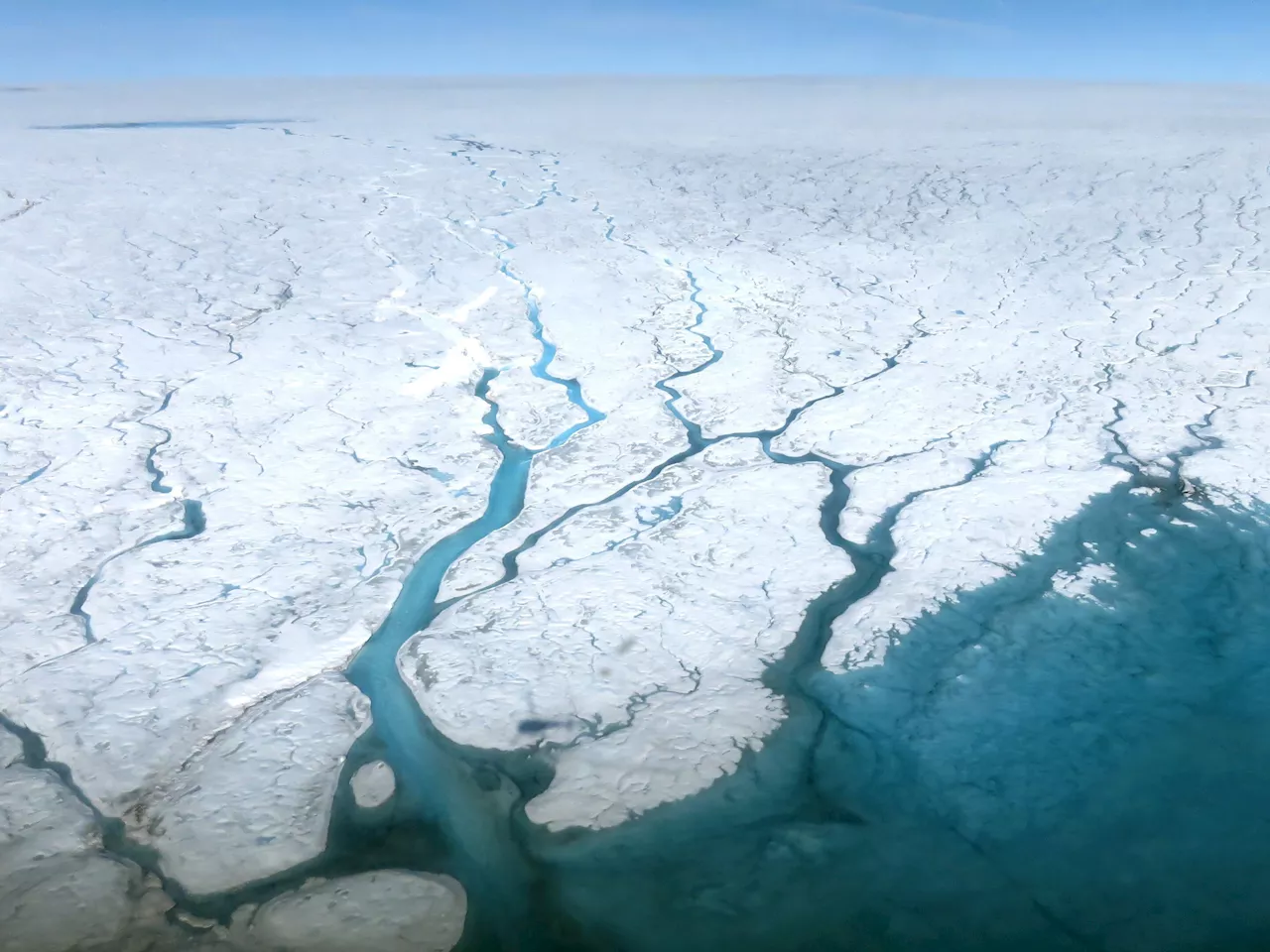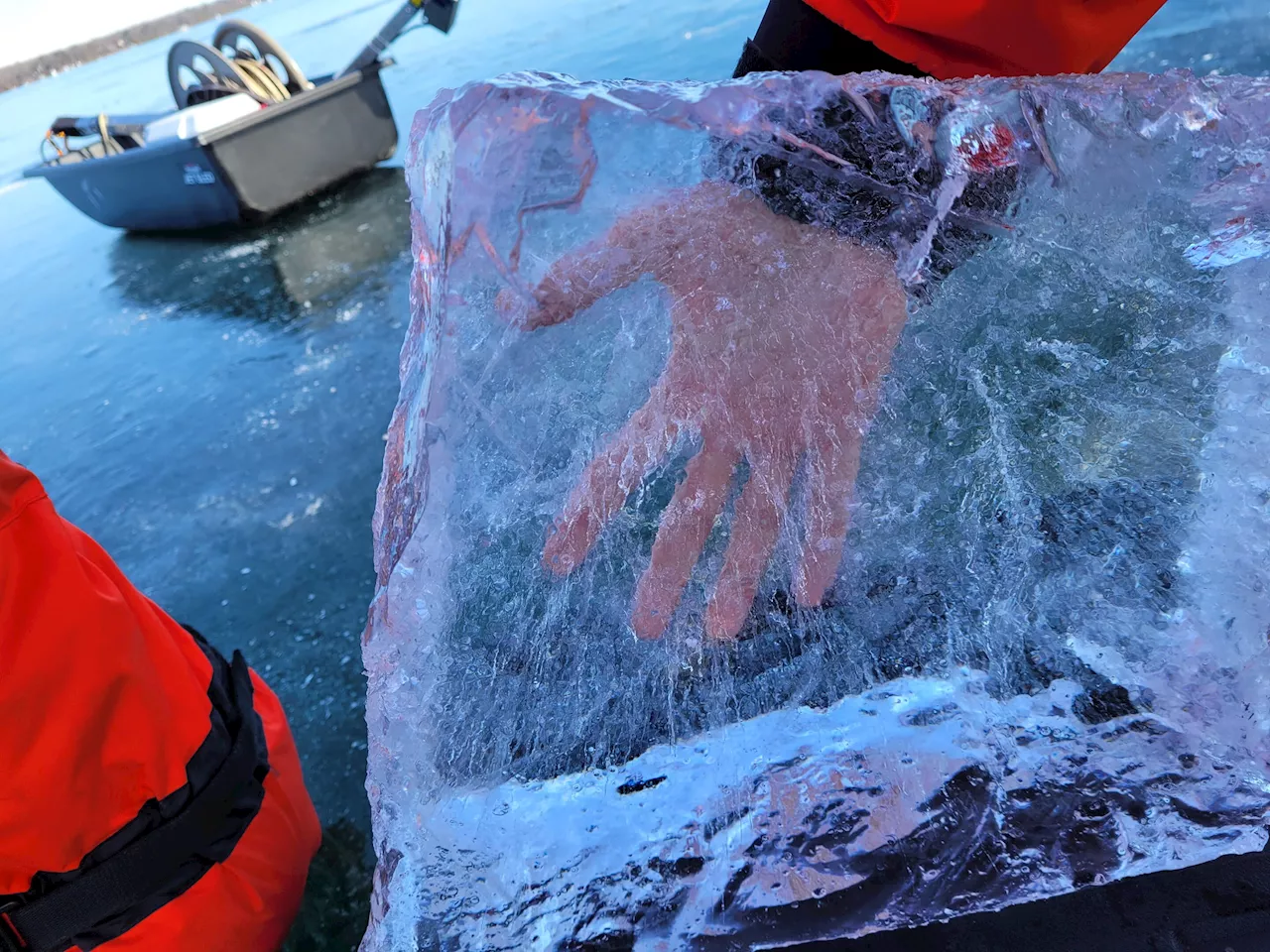Arctic sea ice retreated to near-historic lows in the Northern Hemisphere this summer, likely melting to its minimum extent for the year on Sept.11, 2024,
This image, taken from a data visualization, shows Arctic sea ice minimum extent on September 11, 2024. The yellow boundary shows the minimum extent averaged over the 30-year period from 1981 to 2010. Download high-resolution video and images from NASA’s Scientific Visualization Studio: https://svsdev.gsfc.nasa.gov/5382 according to researchers at NASA and the National Snow and Ice Data Center . The decline continues the decades-long trend of shrinking and thinning ice cover in the Arctic Ocean.
This year, Arctic sea ice shrank to a minimal extent of 1.65 million square miles . That’s about 750,000 square miles below the 1981 to 2010 end-of-summer average of 2.4 million square miles . The difference in ice cover spans an area larger than the state of Alaska. Sea ice extent is defined as the total area of the ocean with at least 15% ice concentration.This year’s minimum remained above the all-time low of 1.31 million square miles set in September 2012.
Ice thickness measurements collected with spaceborne altimeters, including NASA’s ICESat and ICESat-2 satellites, have found that much of the oldest, thickest ice has already been lost.in Southern California shows that in the central Arctic, away from the coasts, fall sea ice now hovers around 4.2 feet thick, down from a peak of 8.8 feet in 1980.Sea ice in the southern polar regions of the planet was also low in 2024.
Malaysia Latest News, Malaysia Headlines
Similar News:You can also read news stories similar to this one that we have collected from other news sources.
![]() Earth from space: Iconic 'Star Trek' symbol shines brightly in sea of muddy Arctic sea iceHarry is a U.K.-based senior staff writer at Live Science. He studied marine biology at the University of Exeter before training to become a journalist. He covers a wide range of topics including space exploration, planetary science, space weather, climate change, animal behavior, evolution and paleontology.
Earth from space: Iconic 'Star Trek' symbol shines brightly in sea of muddy Arctic sea iceHarry is a U.K.-based senior staff writer at Live Science. He studied marine biology at the University of Exeter before training to become a journalist. He covers a wide range of topics including space exploration, planetary science, space weather, climate change, animal behavior, evolution and paleontology.
Read more »
 Russian Nuclear Submarines Cross Under Arctic Ice Near US CoastRussia transferred two nuclear-powered submarines from the Northern Fleet to the Pacific Fleet.
Russian Nuclear Submarines Cross Under Arctic Ice Near US CoastRussia transferred two nuclear-powered submarines from the Northern Fleet to the Pacific Fleet.
Read more »
 Arctic heat waves linked to sea ice loss, new study revealsAmid global warming, heat waves are striking even the Arctic, a region once considered immune to such extreme weather events.
Arctic heat waves linked to sea ice loss, new study revealsAmid global warming, heat waves are striking even the Arctic, a region once considered immune to such extreme weather events.
Read more »
 Discovery about ice layer formation in ice sheets can improve sea level rise predictionsA newly discovered mechanism for the flow and freezing of ice sheet meltwater could improve estimates of sea level rise around the globe.
Discovery about ice layer formation in ice sheets can improve sea level rise predictionsA newly discovered mechanism for the flow and freezing of ice sheet meltwater could improve estimates of sea level rise around the globe.
Read more »
 New discovery about ice layer formation in ice sheets can improve sea level rise predictionsA newly discovered mechanism for the flow and freezing of ice sheet meltwater could improve estimates of sea level rise around the globe.
New discovery about ice layer formation in ice sheets can improve sea level rise predictionsA newly discovered mechanism for the flow and freezing of ice sheet meltwater could improve estimates of sea level rise around the globe.
Read more »
 Lake ice quality degrading as planet warms—skaters, hockey players, ice truckers on thin iceIce may look safe for a game of pick-up hockey on the lake, but as a new study out of York University found, looks can be deceiving. Warming winters are not only affecting ice thickness and timing—when a lake freezes and thaws—but also quality, making it potentially unstable and unsafe.
Lake ice quality degrading as planet warms—skaters, hockey players, ice truckers on thin iceIce may look safe for a game of pick-up hockey on the lake, but as a new study out of York University found, looks can be deceiving. Warming winters are not only affecting ice thickness and timing—when a lake freezes and thaws—but also quality, making it potentially unstable and unsafe.
Read more »
